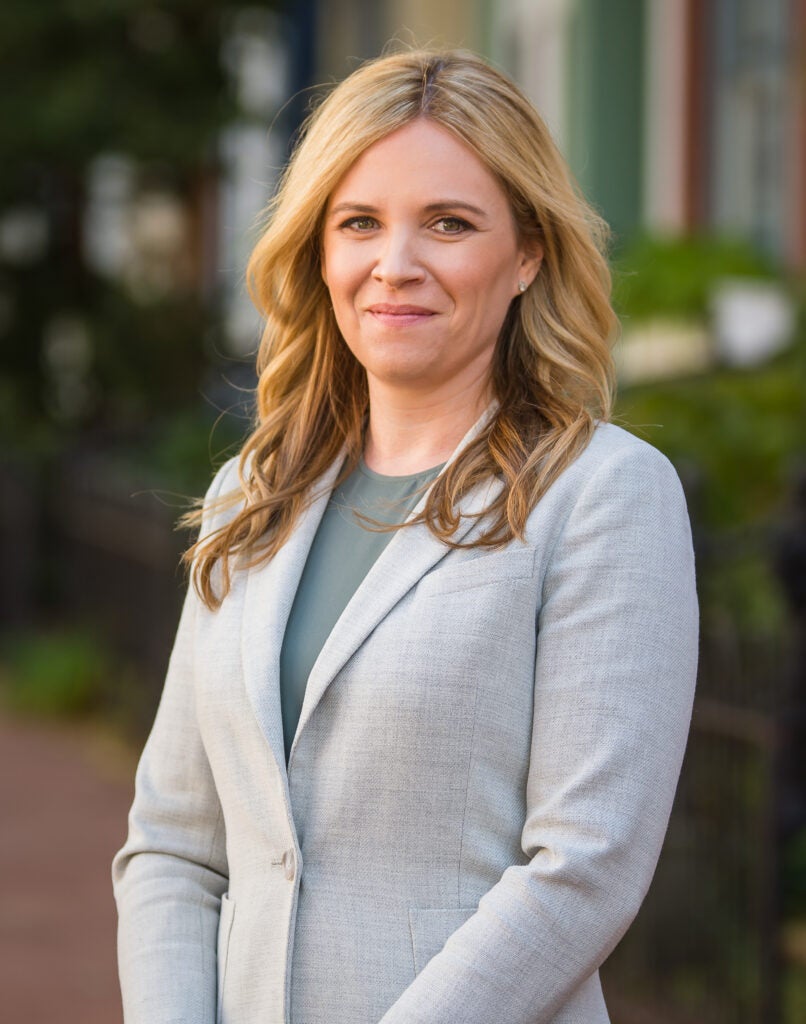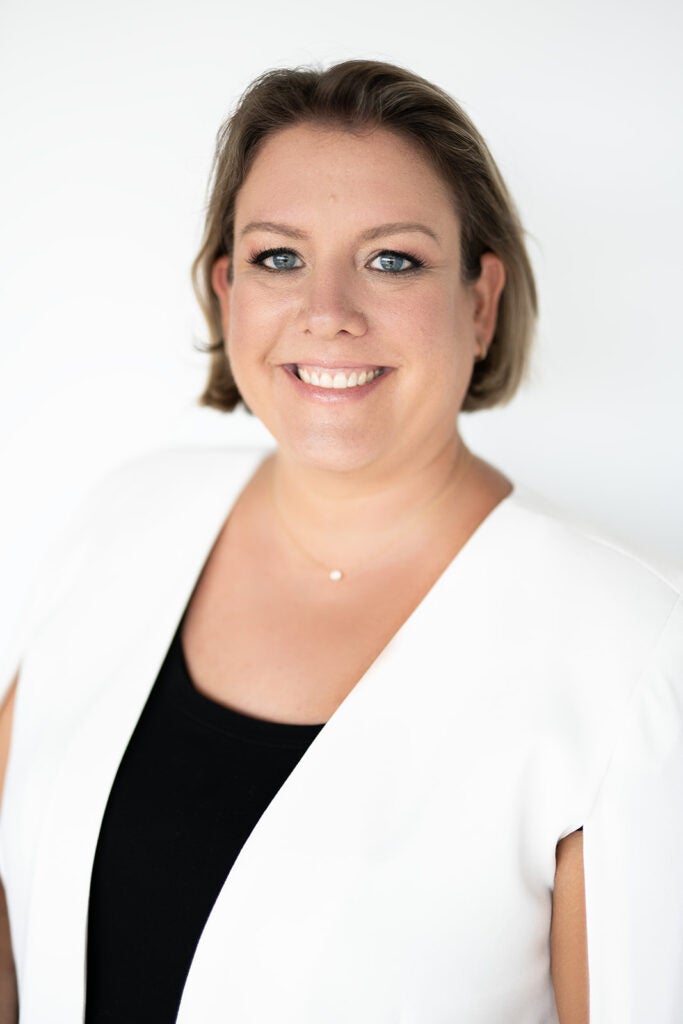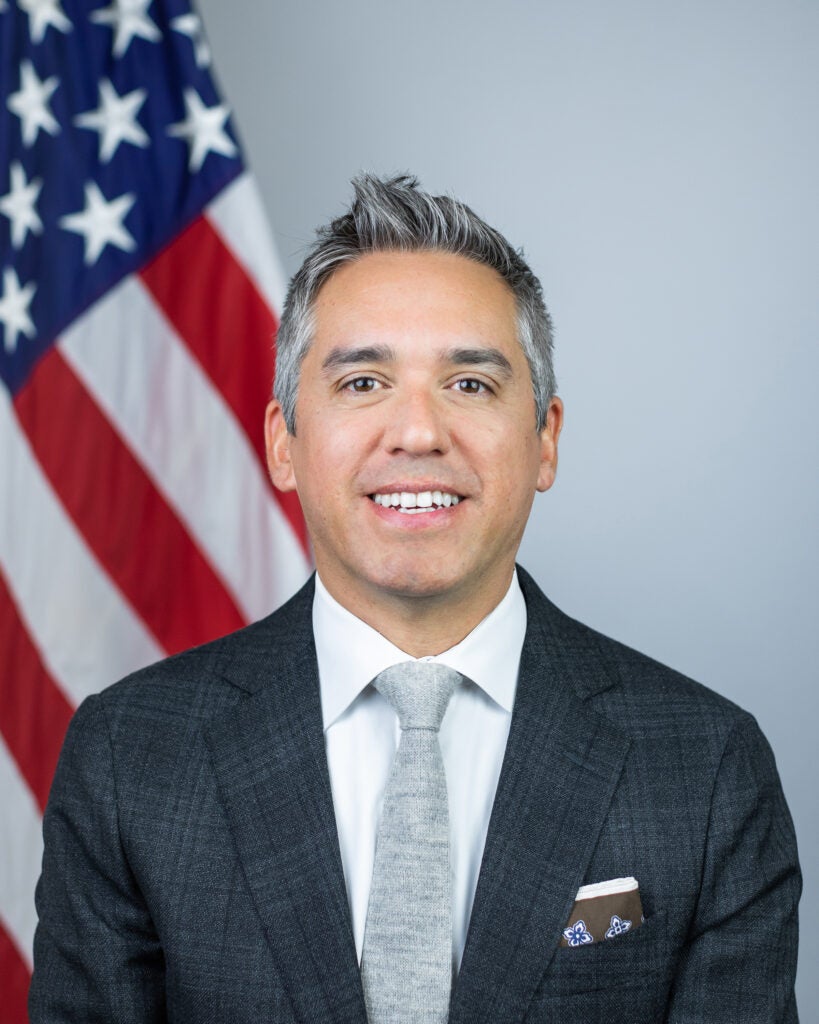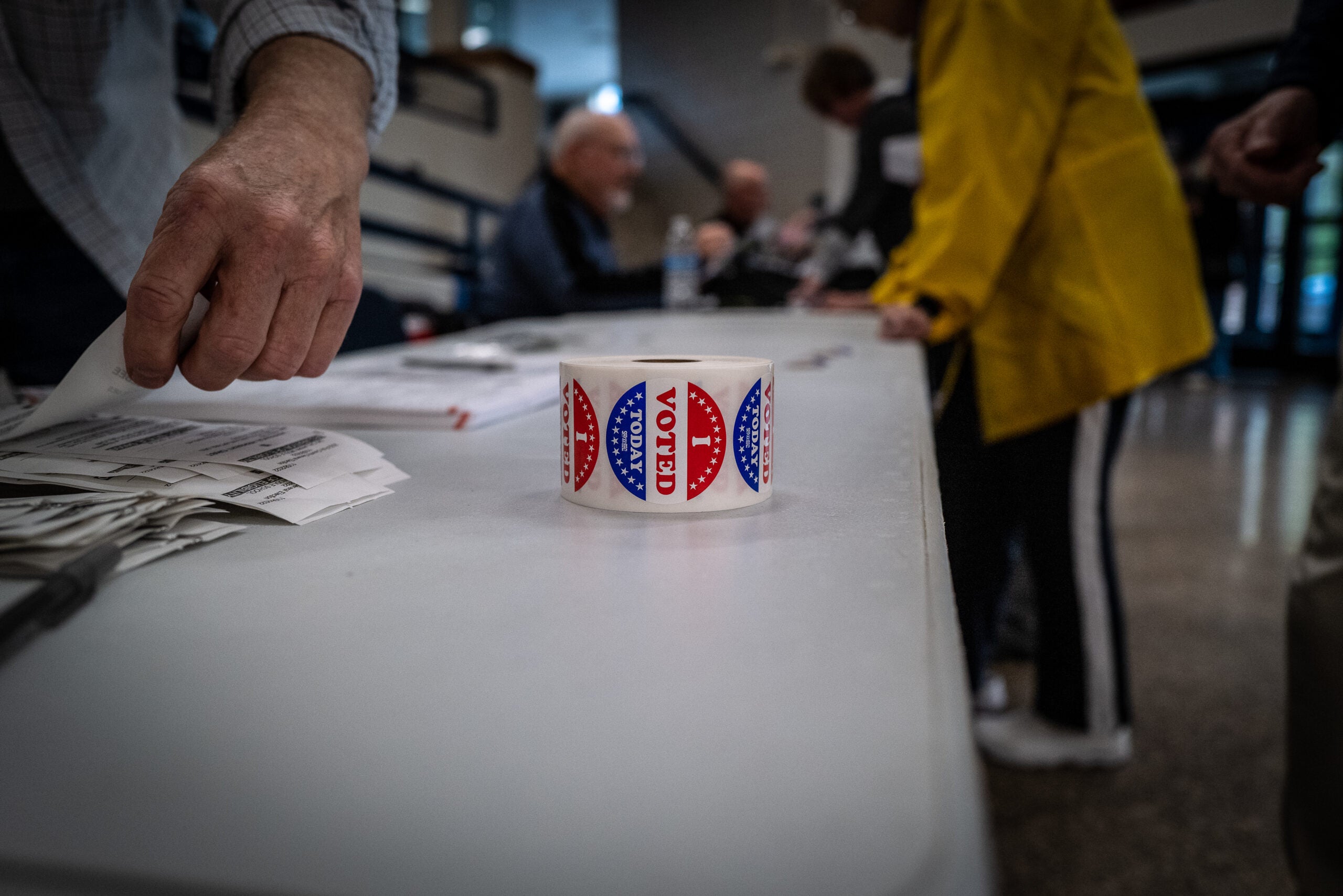GU Politics Fellows offer strategies to safeguard voting and civil rights in U.S. elections
Leading political strategists Cristóbal Alex, Katie Harbath and Katie Walsh Shields evaluate the challenges and opportunities amid the 2024 election cycle and beyond.
At the crossroads of technology and politics, former GU Politics Fellows and current Advisory Board members Cristóbal Alex, Katie Harbath and Katie Walsh Shields are the ideal experts to provide insights into the dynamic landscape of the 2024 elections.
Alex, a renowned political strategist and head of Tusk Strategies’ DC office, previously served as the White House deputy cabinet secretary for President Biden and champions Latino representation. Harbath, a global leader at the intersection of elections, democracy and technology, serves as chief global affairs officer at Duco, a technology consulting firm. Shields, a national political strategist and former White House principal deputy chief of staff, offers more than 15 years of experience in national politics. In a wide-ranging discussion, Alex, Harbath and Shields illuminated the challenges and opportunities of a tumultuous era.

Katie Walsh Shields, national political strategist and former White House principal deputy chief of staff
Q: What are the most significant challenges facing U.S. elections today, and what measures are essential to ensure their integrity and transparency?
Shields: Since 2016, concerns about international influence in our campaigns have been real. More recently, we’ve seen worries about domestic interference. The greatest threat is the disenfranchisement of voters and ensuring they understand their vote counts. Transparency in the vote-counting process is essential. States must report vote counts quickly and accurately to prevent suspicion of nefarious activities. Overall, involving people in understanding, setting and adhering to election rules helps maintain public trust.

Katie Harbath, chief global affairs officer at the technology consulting firm, Duco
Q: How can trust and transparency be fostered between tech and policy? Furthermore, how can social media platforms be leveraged to promote healthy democratic discourse?
Harbath: Tech companies must reveal their decision-making processes around content moderation, including the complexities and trade-offs involved. This allows policymakers to understand the challenges and craft effective regulations. Additionally, welcoming tech experts into policymaking roles can bridge knowledge gaps and facilitate more informed decision-making.
Online communication is shifting towards smaller, private groups, raising questions about how platforms should define and promote balanced discourse. Algorithms increasingly favor unconnected content, giving tech companies more editorial control. Thoughtful discussions are needed to establish new ethical guardrails for content moderation and algorithmic curation.

Cristóbal Alex, a renowned political strategist and head of Tusk Strategies’ DC office
Q: What are the most pressing threats facing civil rights, and what strategies can ensure fair representation?
Alex: We must expand access to reliable information and empower a wider range of voices. This includes encouraging young people, people of color and individuals with diverse perspectives to participate in creating and disseminating news and information. Increasing media literacy and supporting diverse ownership of news outlets are crucial steps.
The rollback of civil rights, exemplified by the Dobbs ruling, and the pushback against historically marginalized communities are major obstacles. Demography alone won’t secure progress; we must actively fight for it through education, advocacy and coalition building.
Q: How do you see the McCourt School and GU Politics shaping and preparing the next generation of political leaders?
Shields: The McCourt School and GU Politics do a wonderful job of creating environments where people can come together and have constructive conversations from different points of view. These institutions foster respectful dialogue and collaboration, which are essential for solving problems and understanding different perspectives. They also play a critical role in educating the next generation of world leaders, helping them build faith in institutions and understand the importance of these dialogues.
Alex: Georgetown and the McCourt School are beacons for democracy and dialogue. The students’ intelligence and willingness to engage in critical discussions are a testament to the School’s commitment to nurturing future leaders. The energy and intentionality of the next generation give me great hope for the future.
Q: What advice would you give to those aspiring to enter careers in politics or tech, especially in our rapidly changing world?
Harbath: Be prepared to forge your own path. Think of your career path as a North Star, guiding you in a general direction, but be open to unexpected detours and opportunities. The ability to learn and adapt quickly is invaluable in these fields.
Alex: Embrace mistakes and learn from them. Every experience contributes to your growth. Remember the Mexican saying, “They tried to bury us, they didn’t know we were seeds.” Draw strength from this message of resilience.
Feature image credit: Phil Roeder from Des Moines, IA, USA, via Wikimedia Commons
- Tagged
- GU Politics
